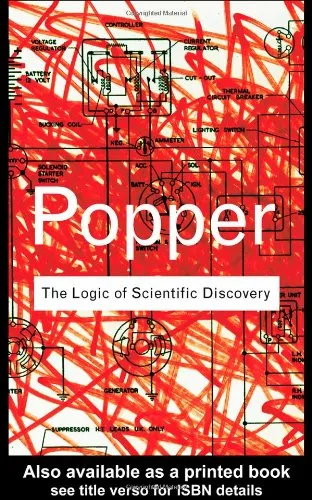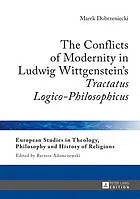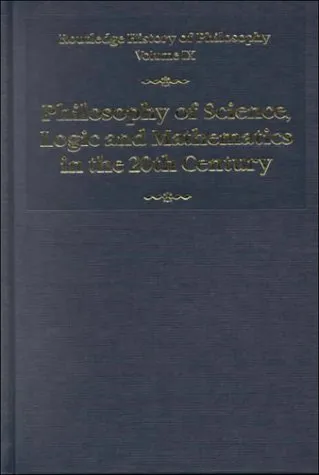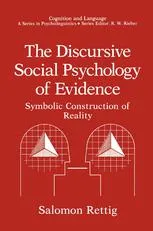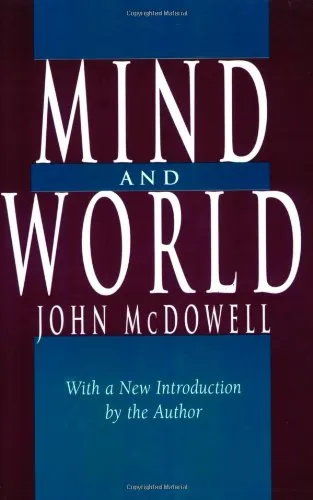The logic of scientific discovery
4.6
بر اساس نظر کاربران

شما میتونید سوالاتتون در باره کتاب رو از هوش مصنوعیش بعد از ورود بپرسید
هر دانلود یا پرسش از هوش مصنوعی 2 امتیاز لازم دارد، برای بدست آوردن امتیاز رایگان، به صفحه ی راهنمای امتیازات سر بزنید و یک سری کار ارزشمند انجام بدینکتاب های مرتبط:
معرفی کتاب «The Logic of Scientific Discovery»
کتاب «The Logic of Scientific Discovery» نوشتهٔ کارل پوپر، یکی از برجستهترین آثار در حوزه فلسفه علم است. این کتاب که نخستین بار در سال ۱۹۳۴ منتشر شد، بسیاری از مفاهیم علمی و فلسفی را به چالش میکشد و با ارائه نظریههای جدید به بهبود روشهای علمی کمک میکند. این اثر به دلیل روششناسی دقیق و تحلیل عمیق خود، همچنان به عنوان یکی از منابع اساسی برای پژوهشگران و علاقهمندان به فلسفه علم محسوب میشود.
خلاصهای جامع از کتاب
در این کتاب، پوپر به بررسی ماهیت علم و فرآیند کشف علمی میپردازد. او با نقد روشهای قبلی، به ویژه The Inductive Method، به معرفی متدولوژی Falsifiability پرداخته است. وی معتقد است که فرضیهها و نظریات علمی باید به گونهای باشند که بتوان آنها را از لحاظ تجربی در معرض آزمون قرار داد و قابل ابطال باشند. برخلاف روش استقرایی که مبتنی بر تجربهها و مشاهدههای گذشته است، پوپر بر این باور است که علم با رفع خطاهای خود و آزمونهای مستمر پیشرفت میکند.
نکات کلیدی کتاب
- معرفی مفهوم Falsifiability به عنوان معیار تفکیک علم از شبهعلم.
- نقد روش استقرایی و تأکید بر فرآیند آزمون و خطا.
- اهمیت آزمون تجربی و نظریهپردازی به جای اتکای صرف بر مشاهدات.
- انعطافپذیری و تطبیقپذیری نظریهها برای پیشرفت علم.
جملات معروف از کتاب
"دانشمند واقعی کسی است که نظریههایش را در معرض آزمونی سخت قرار میدهد، نه کسی که به دنبال تأیید آنهاست."
"علم با رفع خطاهای خود رشد میکند و همین امر آن را از دیگر روشهای شناخت جدا میکند."
چرا این کتاب مهم است؟
اهمیت کتاب «The Logic of Scientific Discovery» در تحولی است که در اندیشه فلسفی و روششناسی علمی ایجاد کرد. ارائه نگرشی جدید به مفهوم علم و تاکید بر Falsifiability به عنوان راهبرد اصلی برای تمایز علم از دیگر حوزههای دانش، این کتاب را به یکی از آثار ماندگار و مهم در فلسفه علم تبدیل کرده است. پوپر با نقد و تحلیل دقیق خود راه را برای پیشرفتهای آیندۀ بسیاری از علوم فراهم آورد. این کتاب همچنان به عنوان راهنمایی برای دانشمندان، فیلسوفان و هر کسی که میخواهد دنیای علم را به شکلی نوین درک کند، کاربرد دارد.
Introduction to 'The Logic of Scientific Discovery'
Written by Karl Popper, 'The Logic of Scientific Discovery' is an intellectual cornerstone in the philosophy of science. Originally published in German in 1934 as 'Logik der Forschung', the book was later translated and significantly expanded in English to provide a profound exploration into the principles that underpin scientific inquiry and its methodology. Popper's work is a revolutionary departure from traditional inductive reasoning, emphasizing the role of falsifiability in scientific theories.
Detailed Summary of the Book
At its core, 'The Logic of Scientific Discovery' challenges the prevailing notion that scientific theories can be validated through induction — the idea that repeated observations form the basis for general laws. Popper introduces an alternative: the principle of falsifiability. He argues that for a theory to be considered scientific, it must be testable and disprovable. If a theory is constructed so that it cannot be refuted, it falls outside the realm of science.
Popper elaborates on how scientific knowledge advances through conjectures and refutations. Scientists propose hypotheses, attempt to falsify them through rigorous testing, and refine these ideas based on empirical evidence. This demarcation between scientific and non-scientific theories transforms how scientific progress is understood, emphasizing that science does not conscript truths but rather, aims to eliminate falsehoods.
Key Takeaways
- Falsifiability as a Criterion: Popper's main thesis is that for a statement or hypothesis to be scientific, it must be possible to refute it.
- Conjectures and Refutations: Scientific knowledge progresses through a cycle of bold conjectures and their subsequent refutations, continually improving existing theories.
- Critique of Inductive Reasoning: Popper takes a critical stance on the reliability of inductive reasoning, suggesting that observations cannot conclusively verify theories.
- Science as a Human Endeavor: The book underscores the creative and dynamic nature of science, driven by imaginative hypothesis-formulation and rigorous testing.
Famous Quotes from the Book
“In so far as a scientific statement speaks about reality, it must be falsifiable; and in so far as it is not falsifiable, it does not speak about reality.”
“Science may be described as the art of systematic over-simplification.”
Why This Book Matters
'The Logic of Scientific Discovery' redefined the framework of how scientific inquiries are approached, offering insights that remain influential in contemporary philosophy, natural sciences, and methodology. Popper's emphasis on falsifiability reshaped the scientific method and serves as a criterion that differentiates science from pseudoscience.
The book's significance lies in its challenge to the foundational elements of scientific practice, insisting on a rigorous standard of testing that shifts the focus from proving theories true to proving them false. This paradigm shift not only impacts philosophical discourse but also informs practical scientific research and policy-making, ensuring a robust approach to understanding the universe.
For scholars, philosophers, and scientists, Popper’s arguments provide a crucial lens through which to scrutinize the development of scientific doctrines. It prompts a reassessment of how theories are formulated, tested, and either upheld or replaced, fostering a deeper appreciation for the process that drives scientific discovery.
دانلود رایگان مستقیم
شما میتونید سوالاتتون در باره کتاب رو از هوش مصنوعیش بعد از ورود بپرسید
دسترسی به کتابها از طریق پلتفرمهای قانونی و کتابخانههای عمومی نه تنها از حقوق نویسندگان و ناشران حمایت میکند، بلکه به پایداری فرهنگ کتابخوانی نیز کمک میرساند. پیش از دانلود، لحظهای به بررسی این گزینهها فکر کنید.
این کتاب رو در پلتفرم های دیگه ببینید
WorldCat به شما کمک میکنه تا کتاب ها رو در کتابخانه های سراسر دنیا پیدا کنید
امتیازها، نظرات تخصصی و صحبت ها درباره کتاب را در Goodreads ببینید
کتابهای کمیاب یا دست دوم را در AbeBooks پیدا کنید و بخرید
2055
بازدید4.6
امتیاز0
نظر98%
رضایتنظرات:
4.6
بر اساس 0 نظر کاربران
Questions & Answers
Ask questions about this book or help others by answering
No questions yet. Be the first to ask!
